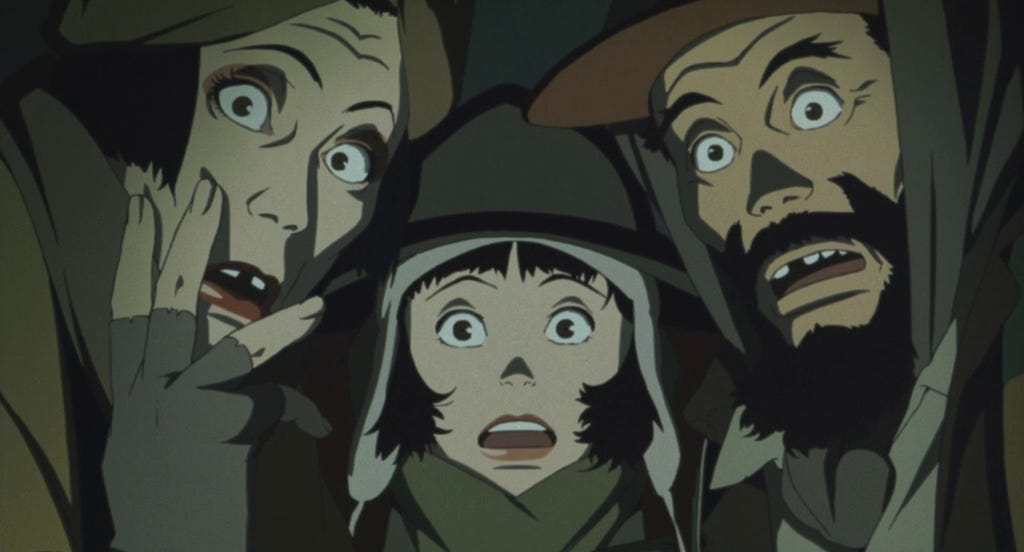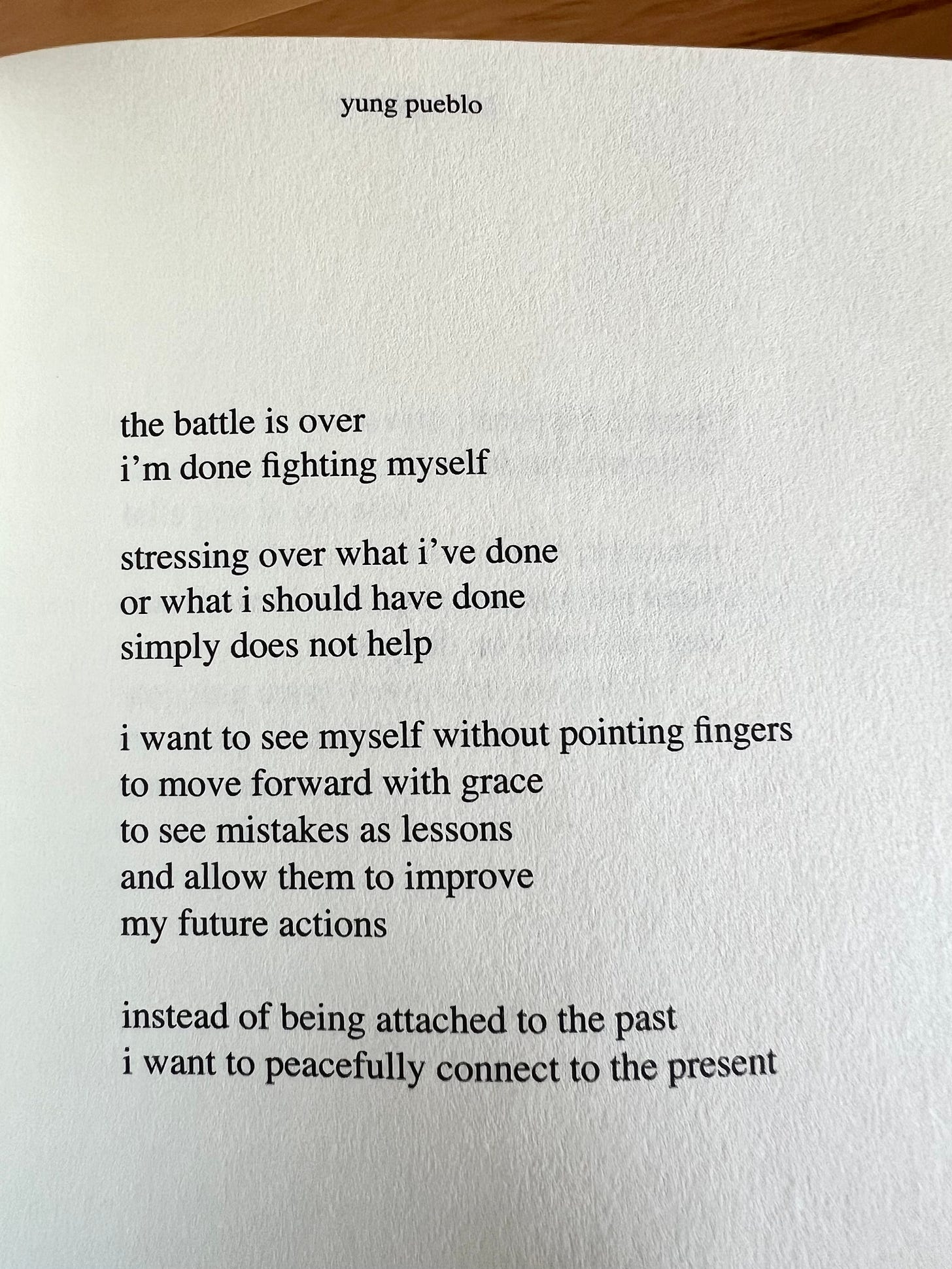I find myself feeling nostalgic around this time of the year and find comfort in revisiting movies of my childhood. I’m not immersed in the anime space at all but a recommendation I came across online intrigued me (send me all your anime recs now, pls).
The story
Tokyo Godfathers (2003)1, an animated film from Japan directed by the late Satoshi Kon, is a fascinating tale on redemption, identity, family, and the human spirit. It offers a unique blend of comedy, drama, and adventure by exploring the lives of three homeless protagonists living in Tokyo who, bound by their shared struggles, become an unconventional family. One Christmas Eve the three stumble upon an abandoned baby they name Kiyoko and embark on a journey to find her family.
Hans is a trans woman who experiences guilt from her past and aspires to experience motherhood. Miyuki is a young runaway who fears facing her parents. And, Gin is a middle-aged alcoholic who neglected his family. Over the course of their adventure to find Kiyoko’s parents and learn the truth, they are confronted by coincidences and reflect on the choices they’ve made in the past.
Kon skillfully displays injustices related to homelessness, societal prejudices, and identity into a narrative that is touching, creating an emotionally resonant experience if I say so myself.
Reflections
Home
The heart of the film lies in its exploration of family dynamics and the realization of what home truly means. As the trio search for Kiyoko’s family, the narrative unfolds as a powerful message to the idea that family is not solely determined by blood but can be forged through shared connections; a resonant reminder that our sense of belonging extends beyond physical spaces.
✨ Perfect synchronicity ✨
In the midst of their quest to reunite Kiyoko with her family, the narrative is interwoven with a series of coincidences that serve as poignant catalysts for self-reflection and transformation for each character. I couldn’t help but think about the concept of synchronicity which echoes the belief that meaningful coincidences are not mere accidents but rather expressions of something deeper; an invitation from the divine to attune ourselves to the unseen forces guiding our journey and an opportunity to evolve.
Acceptance and forgiveness
As Hans, Miyuki, and Gin confront the shadows of their past, acceptance emerges as an act of liberation— a choice to accept their flaws (and of others) despite the scars of imperfection. In tandem with acceptance, forgiveness blooms as a companion on their journeys and ultimately becomes the key that unlocks shackles of resentment.
The character’s experiences speaks to the ubiquity of the human experience— at some point, we’ve all grappled with wounds that have left an ingrained mark on our hearts. Such stories of shame and pain lead to our inclination to conceal our vulnerabilities. The film beckons us to acknowledge that acceptance is not simply a surrender to our flaws, but an empowering choice to embrace every facet of our being; recognizing that in our shared vulnerabilities lies the strength to heal. Further, releasing ourselves from hurt and extending the same compassion to others simultaneously becomes an act of collective healing.
Closing thoughts
I’m always a sucker for a movie full of hidden messages and layers. This was my first time watching this movie and I’m already looking forward to rewatching. I feel it would be the type of movie you can rewatch every time and find new meanings or discover little details you didn’t notice before.
The arguments, banter, and endearing moments between the characters felt relatable. The level of depth among the characters lingered in my thoughts even after watching (enough to inspire me to write about it). Despite deep personal wounds from the past and harsh realities of life on the streets, the film beautifully underscores that even in the most trying moments, humans can reveal the innate kindness that resides within them and showcase their best selves.
The lessons and themes embedded in Tokyo Godfathers also align with the transitional energy of the new year2 . As we step into a new chapter, it’s a timely reminder that regardless of the season, releasing the past is an opportunity for growth and new experiences.
I like to believe the true new year occurs in the Spring, a season symbolizing renewal and rejuvenation.





thank you so much for sharing your review. i’ve been into anime and i absolutely love it. thanks to my husband!
here’s a recommendation:
the boy and the heron by HAYAO MIYAZAKI
ONE OF MY FAVORITE ANIME MOVIES! and you’ve written a flawless review!! I loved reading your thoughts around the movie’s themes and motifs - you just get it 😭😭